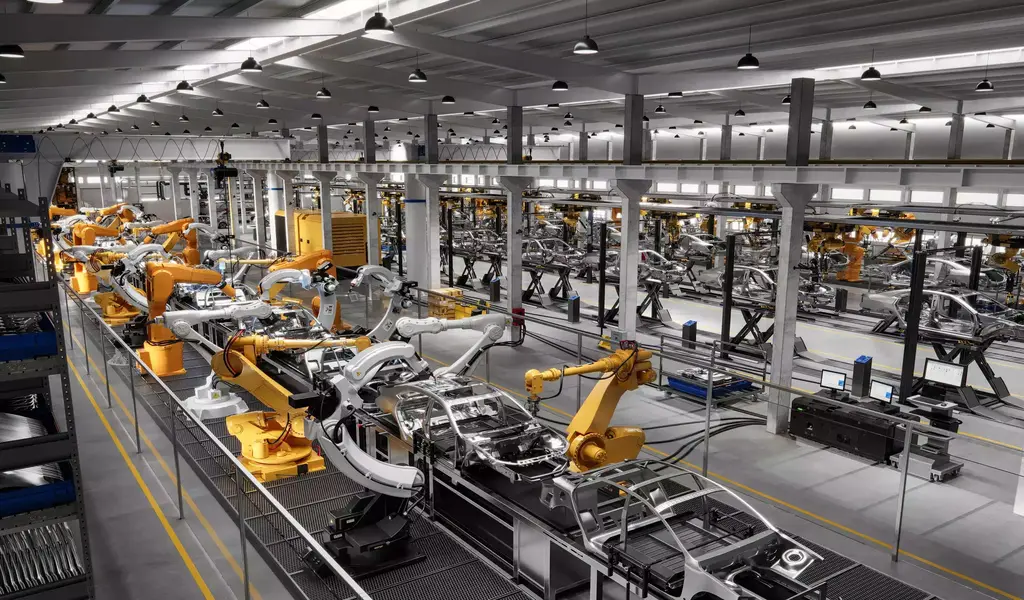Automotive
Die Casting in Automotive Manufacturing: Strength, Precision, and Efficiency

Die casting has become an integral part of the automotive manufacturing industry due to its exceptional strength, precision, and efficiency.
This manufacturing process involves injecting molten metal into a mold cavity under high pressure, producing complex and accurately shaped automotive components.
In this article, we will explore how die casting enhances the automotive manufacturing process, highlighting its strengths, precision, and efficiency.
What’s Precision Die Casting?
Precision die casting is a manufacturing process that involves injecting molten metal into a high-quality steel mold under high pressure. This process ensures the production of intricate and accurately shaped components with tight tolerances. Precision die casting allows for the creation of complex geometries, fine details, and precise features in automotive parts.
The high-pressure injection ensures that the molten metal fills even the smallest details of the mold cavity, resulting in consistent and precise replication of the desired component.
This level of precision is crucial in automotive manufacturing, where accurate dimensions and tight fits are essential for optimal performance and reliability.
Precision die casting plays a vital role in producing high-quality automotive components that meet the industry’s stringent requirements for precision and performance.
Advantages of Die Casting for Automotive Manuacturing
Strength
One of the primary advantages of die casting in automotive manufacturing is the superior strength it offers. Die-cast automotive components exhibit excellent structural integrity and durability, making them ideal for critical applications.
The process ensures a dense and uniform internal structure, reducing the likelihood of defects and weak points in the final product.
The resulting components can withstand high loads, temperature variations, and other challenging conditions encountered in automotive operations.
This strength allows die-cast parts to contribute to the overall safety and reliability of automobiles.
Precision
Die casting enables the production of highly precise and intricately designed automotive components. The use of high-pressure injection ensures that the molten metal fills even the smallest details of the mold cavity, creating complex shapes with tight tolerances.
This level of precision is particularly beneficial for components such as engine parts, transmission housings, and suspension components, where accurate dimensions and tight fits are crucial.
The ability to replicate intricate features consistently makes die casting a preferred choice for automotive manufacturers aiming for reliable and well-fitting parts.
Efficiency
Efficiency is a key aspect of automotive manufacturing, and die casting excels in this regard. The process allows for high production rates and rapid cycle times, leading to increased efficiency and cost-effectiveness.
Die-casting machines can inject molten metal into multiple molds simultaneously, enabling the mass production of automotive components.
Additionally, the use of reusable molds, made from materials such as steel, further enhances the efficiency as they can withstand numerous casting cycles. The streamlined production process and reduced material waste make die casting an efficient choice for automotive manufacturers.
Reduced Weight
Another advantage of die casting in automotive manufacturing is the ability to create lightweight components without compromising strength.
By utilizing lightweight metals like aluminum and magnesium, die-cast automotive parts offer improved fuel efficiency and reduced emissions.
These lightweight materials are also easier to handle during assembly and contribute to overall vehicle weight reduction, enhancing performance and maneuverability.
Die casting enables the production of intricate, thin-walled structures, further contributing to weight reduction while maintaining structural integrity.
Design Freedom
Die casting provides automotive designers with considerable freedom in creating complex geometries and integrating multiple functions into a single component.
The process allows for the incorporation of features such as internal cooling channels, threading, and embossed logos directly into the die-cast parts, eliminating the need for additional machining operations.
This design freedom enhances the overall efficiency of the manufacturing process and facilitates the development of innovative automotive solutions.
Custom aluminum casting refers to the process of creating aluminum components that are specifically designed and tailored to meet unique customer requirements. This casting method involves pouring molten aluminum into a customized mold or die to produce parts with the desired shape, size, and features.
Custom aluminum casting offers a high degree of flexibility and versatility, allowing manufacturers to create complex and intricate designs with precision.
The ability to customize aluminum castings makes them ideal for various industries, including automotive, aerospace, electronics, and more. This process enables the production of lightweight and durable aluminum components that offer excellent strength-to-weight ratio, corrosion resistance, and thermal conductivity.
With custom aluminum casting, manufacturers can fulfill specific project needs, optimize performance, and achieve cost-effective production of parts that are tailored to their exact specifications.
Conclusion
Die casting has revolutionized automotive manufacturing by offering exceptional strength, precision, and efficiency. The process produces robust and reliable automotive components that can withstand demanding operating conditions. The precise nature of die casting enables the creation of intricate parts with tight tolerances, ensuring accurate fits and dimensions.
Furthermore, the efficiency of die casting, coupled with the ability to produce lightweight components, contributes to enhanced fuel efficiency and performance in vehicles. With its numerous advantages, die casting continues to be a vital technique in the automotive industry, driving advancements and innovation in automobile manufacturing.
SEE ALSO: EV News Today: BMW i5, Tesla’s Expansion, Electric Escalade, and Prieto’s Revolutionary Battery Tech






























